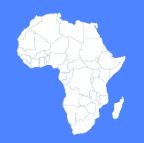| Sun. June 01, 2025 | |

|
|
|
The lack of adequate and reliable access to electricity to more than 600 million people on the African continent is well documented and has been a major undermining factor to Africa’s efforts to improve health, education, quality of life and economic development. For decades the prevailing strategy for almost all African countries has been centered on largescale energy infrastructure projects particularly big hydroelectric dams that are intended to provide power to the national grids and export energy to other countries. These large-scale projects while ambitious in their scopes are proving to be increasingly unsustainable as they are costly, time-consuming as they take years to even decades to complete and they rely on extensive transmission networks to move power to final consumers who are located hundreds of kilometers away from the energy production sites. Also, they create system wide vulnerabilities in that when one dam fails, or a major transmission line is damaged entire regions or even countries are plunged into darkness. It is about time that African countries have a rethink about their energy development strategies, instead of focusing and investing in centralized power generation that are usually prone to corruption they should rather pursue a more decentralized, flexible and resilient approach that can leverage mini hydroelectric dams along with a mix of renewable energy sources such as solar to bring electricity directly to communities. Why Mini Dams Make Sense Mini Dams which are typically generating under 10 megawatts of electricity offers many benefits such as a localized solution that is convenient for much of Africa’s geographic, social and economic realities, which unlike mega dams they are quicker to build, less capital requirement and can be built close to the consumers thereby eliminating the need for constructing expensive loss prone long distance transmission networks. These mini dams also improve energy security, for example in the event of material failure or sabotage only a limited area is affected as opposed to an entire province, region or country in the case of a mega dam. This makes a decentralized system attractive especially in countries with political instability where infrastructure vulnerability is of concern. The Case for Guinea Taking the case for Republic of Guinea which is often called “Water tower of West Africa” is a very good candidate for this strategy of decentralization of power generation. There are many rivers crisscrossing the country such as Niger, Milo, Konkoure, Tinkisso, and Makona that all flow near or through major cities like Conakry, Kindia, Kankan, Labe, and N’zerekoure. Despite this abundance of natural hydropower resources most Guinean population still lack access to stable electricity. Rather than waiting for large national grid projects to be built which could take years and even a decade Guinea can act now by developing a network of strategically placed mini hydro plants near urban and semi urban centers which could rapidly electrify entire cities or regions. This strategy would save millions of dollars on the costs of building transmission networks, reduce energy loss through the grid and allow for modular scaling up based on population growth and economic development. Economic and Social Benefits These mini dams offer strong socio-economic returns in that localized power supply encourages the growth of small industries, improve essential services delivery, creates opportunities for youth employment in the installation, maintenance and energy management as well as provide opportunities for local entrepreneurs to invest in the projects. From the construction phase there is stimulation of the local economies by using local labor and materials. Also from a climate perspective, small scale hydro is clean, renewable which aligns with Africa’s green energy ambitions. When this kind of energy is combined with solar and others, mini hydro can form part of a hybrid grid solution that ensures energy reliability all year round. A Strategic Shift Is Needed In order to achieve such a vision African government (in this case Guinea) must adopt a change in policy and planning.
Conclusion What Africa needs is not mega-projects to deliver electricity to its people but rather a new energy vision and strategy that is built on small, smart and locally controlled infrastructure like mini hydro dams which can be built faster, cheaper and more equitable access to electricity. A case study of Guinea with its vast river network and huge unmet energy demand it’s well positioned to lead in the energy transformation. By going the way of decentralized energy model Africa can light up homes, power industries and unlock its full potential and that of its people without repeating past mistakes. Oumar Fofana is a freelance writer for IA-Forum.
|
|
| Contact Us | About Us | Donate | Terms & Conditions |
|
All Rights Reserved. Copyright 2002 - 2025

